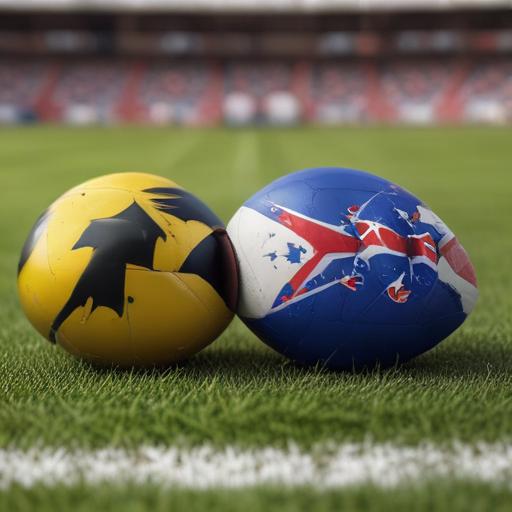Farmageddon lands in Dublin as two Midwest powers rekindle a long-standing quarrel
Week 0 of college football arrives with its usual taunt of anticipation, but this year’s opening salvo arrives with a twist: a rivalry clash unfolding halfway around the world. In a scene that sounds unlikely on a calendar when the big conferences chase TV windows, Iowa State and Kansas State meet in Ireland to kick off the season’s action.
Two programs with a stubborn sense of pride and a lot of mileage on their helmets — ranked teams in the latest polls, Kansas State at No. 17 and Iowa State at No. 22 — square off in a Big 12 showdown that carries conference-title and playoff implications. Iowa State coach Matt Campbell frames the matchup as a meaningful opportunity and a chance to honor a tradition that’s endured for more than a century.
The game marks the 109th meeting between the teams, a series that dates back to 1917. Yet this tradition sits in a fragile moment for college football’s scheduling landscape. By 2027, Farmageddon could have no future in the regular schedule, a casualty of the ongoing conference realignment era.
The Big 12’s scheduling approach adds another layer of complexity. The league, now comprised of 16 members, uses a “scheduling matrix” to manage a dense calendar. Only four long-standing rivalries have been designated as protected and guaranteed a recurring slot each season: Arizona-Arizona State, BYU-Utah, Baylor-TCU, and Kansas-Kansas State. The practical effect is that the rest of the rivalries must compete for time, with motivations and preferences sometimes pulling in different directions. Kansas State may prioritize a future matchup with Kansas, while Iowa State hopes to preserve a nonconference meeting with Iowa, a traditional cross-country ringer to balance the schedule.
Despite the realignment pressures, Farmageddon’s run stands out for its longevity. Its uninterrupted thread remains longer than several other storied rivalries, underscoring what some call the enduring value of old-school, regionally rooted competition. The sports world often fixates on the blue-blood programs and the headlines they generate, but the greater appeal of college football lies in everything else: a mosaic of 136 FBS programs across more than 40 states, from massive state schools to intimate private colleges, each with its own memories, rituals, and moments.
The Irish setting adds a touch of whimsy to a game that already embodies the sport’s charm: a reminder that passion, pageantry, and pride can travel beyond borders, even as the business side of the sport presses on with scheduling matrices and realignment anxieties. The reference points— snowy, earlier-era spectacles like the winter-weather Snowmageddon featuring Iowa State’s Abu Sama III, who logged 276 yards and four touchdowns in a 2023 stormy test against Kansas State — have become part of the lore that makes this rivalry special.
What this game and the broader debate around it reveal is a sport that needs to guard its traditions amid a shifting financial landscape. The enduring image is two communities, a couple of programs carrying decades of history, stepping onto a field in a foreign city to celebrate not just a game, but a shared sense of belonging to something bigger than the scoreboard.
Summary: Iowa State and Kansas State renew Farmageddon in Dublin, a clash of two proud programs ranked in the top 25, amid the broader backdrop of realignment and a scheduling system that guarantees only a handful of rivalries. The game highlights the value of tradition in college football, even as money and realignment threaten a stable future for some classic series.
Additional notes and possible angles for readers:
– A closer look at how the Big 12’s scheduling matrix operates and what that means for traditional rivalries beyond Farmageddon.
– The cultural and fan-footprint impact of playing a major rivalry abroad, including how international games fit into the sport’s growth strategy.
– Historical context of Farmageddon’s longevity and how fan communities have kept the rivalry vibrant even during lean seasons.
Overall sentiment: hopeful and appreciative of tradition, while acknowledging the realignment pressures reshaping schedules.
